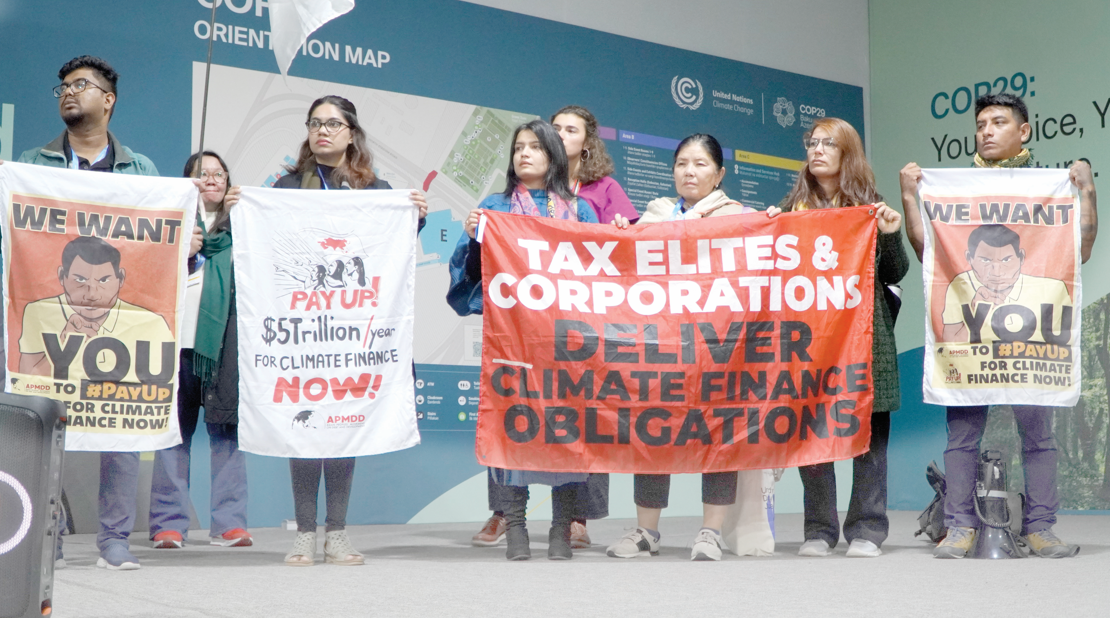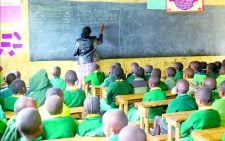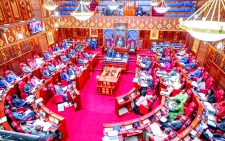An upset Africa looks inwards to bridge climate finance gap

African countries led the developing world in pushing for more money at the United Nations Climate Change Conference (COP29) but they were left disappointed with the $300 billion compromise deal negotiated to help tackle climate change.
The deal enraged African nations, which are disproportionately affected by the impacts of climate change.
Developing countries were unanimous that the funding was too low as it fell far short of the $1.3 trillion mark they had set as the amount required to counter the impacts of climate change.
Speaking on behalf of 50 African nations, Ali Mohamed, Kenya’s Special Envoy for Climate Change and also chairman of the African Group of Negotiators, told the summit that the negotiated amount was “totally inadequate and would lead to unacceptable loss of life in Africa and around the world”.
After grudgingly agreeing to the deal, the African nations realised that they cannot rely solely on the UN agencies and the developed world for climate finance. They must find and generate their own resources and partnerships to supplement and bridge the gap.
In a major step to address Africa’s climate finance gap, the African Development Bank (AfDB) launched a new funding call at COP29 that will support the preparation, financing and implementation of climate projects across 37 low-income African countries.
With an initial allocation $56 million, the Climate Action Window (CAW) technical facility will target adaptation and mitigation projects aligned with the Paris Agreement, Nationally Determined Contributions (NDCs) and National Adaptation Plans (NAPs).
Community resilience
Backed by significant funding commitments from the United Kingdom, Netherlands, Germany and Switzerland, the new facility will accept proposals from governments, regional organisations and UN agencies in the African countries most vulnerable to the impacts of climate change. Awards will range from $260,000 (Sh33.7m) to $1.3 million (Sh168m) per project.
Côte d’Ivoire’s Minister for Environment and Sustainable Development, Assahore Konan Jacques, while thanking AfDB, said that the funds will help finance people’s resilience.
“For countries like Chad, climate vulnerability is not just a term. Our people face floods, droughts and immense losses. We need real, fast-acting solutions to deliver on transformative projects,” Chad’s Minister for Economy and Planning Fatima Haram Acyl said, echoing that need to strengthen communities’ resilience.
Madagascar’s Minister for Environment Max Andonirina Fontaine said CAW’s flexible approach would help his country fund eco-tourism projects that both protect forests and create jobs.
“This facility will ensure that projects in Africa’s most climate-vulnerable regions are well-positioned to attract significant funding, creating a win-win scenario where countries can achieve climate targets, while advancing sustainable development,” AfDB Vice President of Power, Energy and Climate Change, Kevin Kariuki said, adding that the CAW provides a veritable channel for countries to meet their global climate commitments.
The Green Climate Fund (GCF), a critical element of the Paris Agreement, is the world’s largest climate fund, mandated to support developing countries raise and realise their NDCs ambitions towards low-emissions and climate-resilient pathways.
“Our partnership with AfDB has proven the efficacy of co-financing. With $800 million in co-financing, we are leveraging $1.6 billion to ensure that Africa’s most vulnerable populations have access to critical adaptation resources,” GCF’s Regional Lead for Southern and Eastern Africa Euan Low observed.
With the launch of the CAW, the African Development Bank will be able to reach through its largest pipeline for adaptation projects, with 80 projects valued at $800 million already identified, and 41 projects funded. The CAW has also mobilised additional co-financing and partnerships with key climate funds like the Global Environmental Facility (GEF) and Adaptation Fund.
Africa, with its vast carbon-sequestering forests and resources ripe for green growth, holds massive potential to drive clean energy access for millions. Yet, Sub-Saharan Africa receives less than 3 per cent of global climate finance.
“Africa should be greenly wealthy by proper valuation of its vast contributions to global environmental services,” AfDB President Adesina Akinwumi had asserted during a meeting of African ministers of finance, economy, foreign affairs, climate change and environment in the run-up to COP29.












